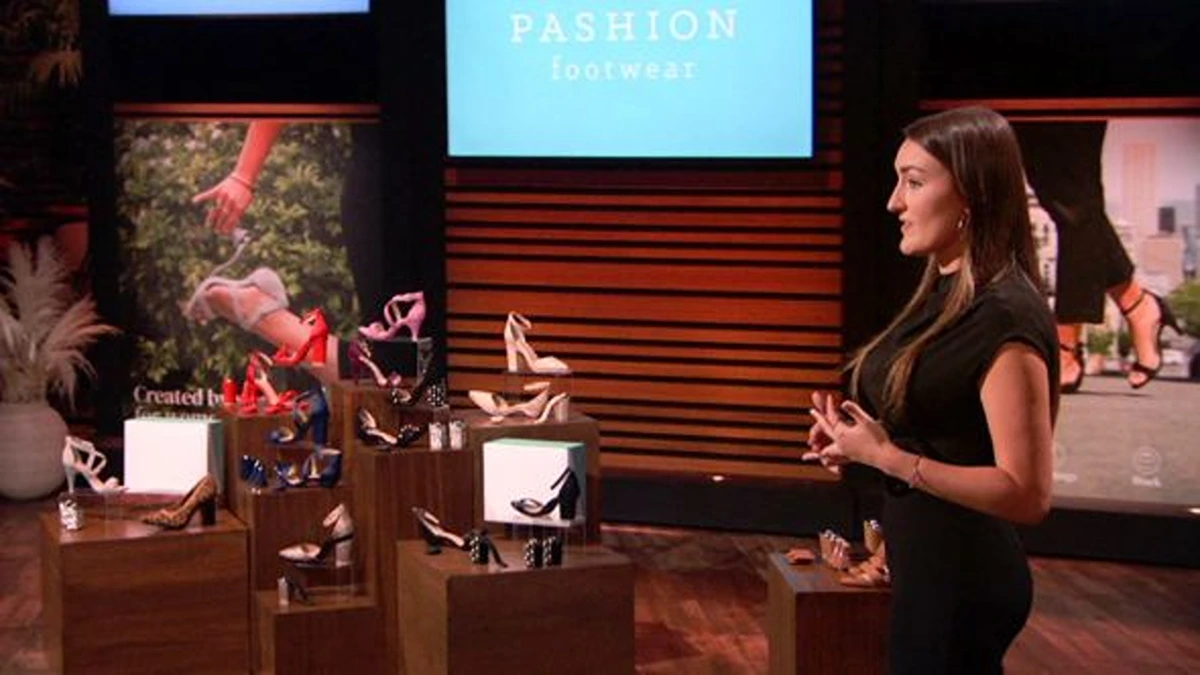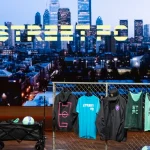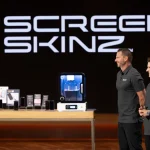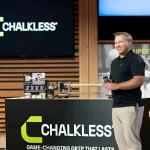
There’s a magic moment on Shark Tank when a product surprises the investors. It’s when something novel meets instantly understandable value. That “WOW” moment happened for Pashion Footwear in Shark Tank Season 12 Episode 14, makers of shoes whose heels detach and convert into flats. The idea was elegant: high heels for style, flats for comfort, all in one pair.
It’s the kind of “aha” innovation that turns heads on the Tank. But the real story is deeper. The founder’s mission, the engineering challenges, the ups and downs post-episode, and why this concept resonates for women who refuse to choose between form and function.
The Problem: Why Convertible Heels Matter
Ask many professional women: by midday, their feet ache, their posture shifts, and the beautiful heels they wore in the morning start to feel like instruments of torture. The choices are stark: limp through discomfort, carry extra flats in a bag, or resign to style sacrifice. For many, that tradeoff is simply unacceptable.
The solution is Pashion Footwear. Their promise is straightforward: wear your heels, then convert them to flats for instant comfort without style abandonment. According to their website, their shoes are “customizable, molded to your unique lifestyle, always keeping up, never slowing you down.”
Their heels are removable and swappable: you can detach them in seconds and continue walking confidently. That single innovation gives women flexibility through a busy day, from professional settings to errands or social evenings.
Fashion magazines have tested these designs. For instance, Cosmopolitan reviewed Pashion’s convertible heels, exploring whether their promise of walking comfort lives up to the hype. In practice, such designs are not entirely new, but Pashion has distinguished itself by driving comfort, style, and functionality in one package.
Origin & Entrepreneurial Beginnings
Pashion’s founder, Haley Pavone, reportedly launched this idea in college. At 24, her venture drew attention precisely because it addresses a universal frustration with a technically clever solution. Pashion is often cited among the few brands putting convertible high heels into real products.
These are some of the factors that make the product unique:
- A well-engineered detachable heel mechanism.
- Focus on comfort materials and fit.
- Aesthetic design so the flat mode still looks stylish.
- Positioning the product as a 9-to-9 shoe: from morning events in heels to evening errands in flats.
The idea struck a chord in media coverage, but real traction, distribution, scale, and consumer trust were still ahead.
The Shark Tank Moment: When the Sharks Say “WOW”
When Pashion appeared on Shark Tank, the founder presented her convertible heel innovation and pitched it as a revolutionary comfort solution for women. The mechanics were physical, demonstrable: detachable heels, reattachment, flat mode, all within a few seconds.
At that point, Barbara Corcoran responded with genuine surprise: “WOW.” That moment captures what every founder wants, which is validation from seasoned investors when the idea transcends categories. That exclamation is the emotional signal that this isn’t just a shoe; instead, it might be a game-changer.
That “WOW” also communicated confidence to the audience: if the Sharks are surprised, maybe this can scale beyond the niche.
The Sharks probed further, including durability, ease of conversion, the price point, margins, repeat purchase potential, manufacturing complexity, and distribution. Because in footwear, engineering is only half the battle. However, brand, fit, returns, comfort, and scale are the rest.
While Pashion declined an offer or at least didn’t accept one during their Tank appearance, the exposure offered visibility, credibility, and a chance to accelerate.
Why That Reaction Was Justified
It’s informative to unpack why the Shark saying “WOW” made sense and what about Pashion’s offer demands respect.
- Instantly understandable value: You don’t need a long explanation. Everyone knows the pain of high heels. A convertible heel that immediately becomes a flat touches a real universal tension. The promise is obvious.
- Physical demonstration works: In the Tank, the founder can show detaching, converting, walking — no abstract pitch. That tangibility is rare in many product pitches.
- Potential for upsell & modularity: Because heels are removable, there’s an opportunity for selling additional heel styles, materials, heights, and colors. The platform model helps extend lifetime value.
- Engineering and fashion hybrid: Footwear brands often struggle to marry functional engineering and desirable aesthetics. Pashion’s appeal is both design and mechanism.
- Market size and repeated problem: The buyer base is large — any woman who wears heels is a potential customer. And because comfort becomes a recurrent theme (daily, multiple pairs, multiple occasions), repeat purchases, replacements and variants are viable.
Post-Show Trajectory & Business Moves
After Shark Tank, Pashion leveraged the exposure. One corporate profile by NetSuite highlights how Pashion’s business accelerated post-show. The firm used improved infrastructure, better inventory management, and e-commerce scaling to capture more orders.
Pashion also got visibility in major media. The LATimes covered the founder’s story, noting that though she turned down a Shark offer years ago, the brand has nevertheless grown via e-commerce success.
In product evolution, the company continued refining its convertible heels, marketing them as “convert from high heel to flat in seconds” and pushing the idea of product longevity and usability.
Yet challenges remain. Convertible shoes must survive wear & tear. Many skeptics ask:
- Does the heel mechanism hold up under thousands of steps?
- Is the flat mode comfortable and stable?
- Are returns and sizing manageable?
- Can the brand sustain fashion trends, colors, and seasonal changes?
Still, Pashion’s story demonstrates a bold intersection between innovation and consumer empathy.
Lessons & Implications for Entrepreneurs
From Pashion’s convertible heels and Shark’s “WOW,” several lessons emerge for other founders, especially in consumer goods and fashion tech.
- Solve a pain people already feel: If your solution resolves friction people already know, you don’t need to teach a new problem.
- Design matters, but function must be reliable: Fashion demands aesthetics; engineering demands durability — the marriage is tough but essential.
- Platform/ modular product thinking helps: Designing detachable components (heels) allows upsell (new heel modules), customization, and product longevity.
- Product demos are powerful: In-person or video demonstrations that clearly show how the product works reduce skepticism and help “sell” features.
- Brand credibility and trust are key: In footwear, returns and comfort concerns abound. Building trust through guarantees, testimonials, and transparent materials helps.
- Scaling is harder than invention: From prototypes to manufacturing to sourcing, quality control, and distribution — that transition often makes or breaks brands.
- Even if you don’t take investment, exposure matters: Pashion declining (or not accepting) a Shark deal didn’t stop the momentum. The show provided marketing, credibility, and leveraging partnerships.
- Fail forward and iterate: The path from first design to market-ready product is rough. You need feedback loops, prototypes, customer testing, failure, and iteration.
The Broader Significance: Comfort, Style & Women’s Choice
Pashion isn’t just a novelty. It sits within a wider movement: to give women choice, comfort, and agency. For decades, women’s fashion has asked them to sacrifice one for the other. Pashion’s convertible heel is a literal reclaiming; you can have the elegance of heels and the practicality of flats without fumbling for a spare.
As workplace norms evolve, more women are demanding that fashion serve their lives, not constrain them. Products like this speak to a generation that expects flexibility, performance and personal style to coexist.
That a Shark said “WOW” isn’t just praise, it’s acknowledgment that the product hits both emotional and functional chords. It reflects a readiness for consumers to embrace such hybrids, and for the market to reward them.
Conclusion
When a judge on Shark Tank utters “WOW,” that’s as much a cultural signal as it is business praise. It means a product broke through the noise and delivered something unexpected yet sensible.
Pashion Footwear’s convertible heels embody that rare combination: a familiar pain, a clever solution, design sensibility, and business extension potential. Thus, the founder’s story of turning doubt into a venture, of declining an offer, and of pushing forward is part of the brand’s narrative.




















